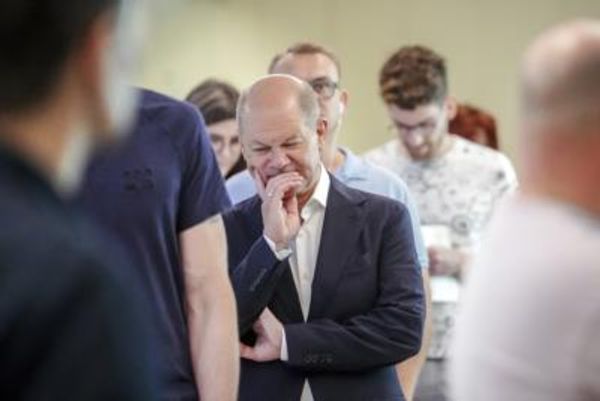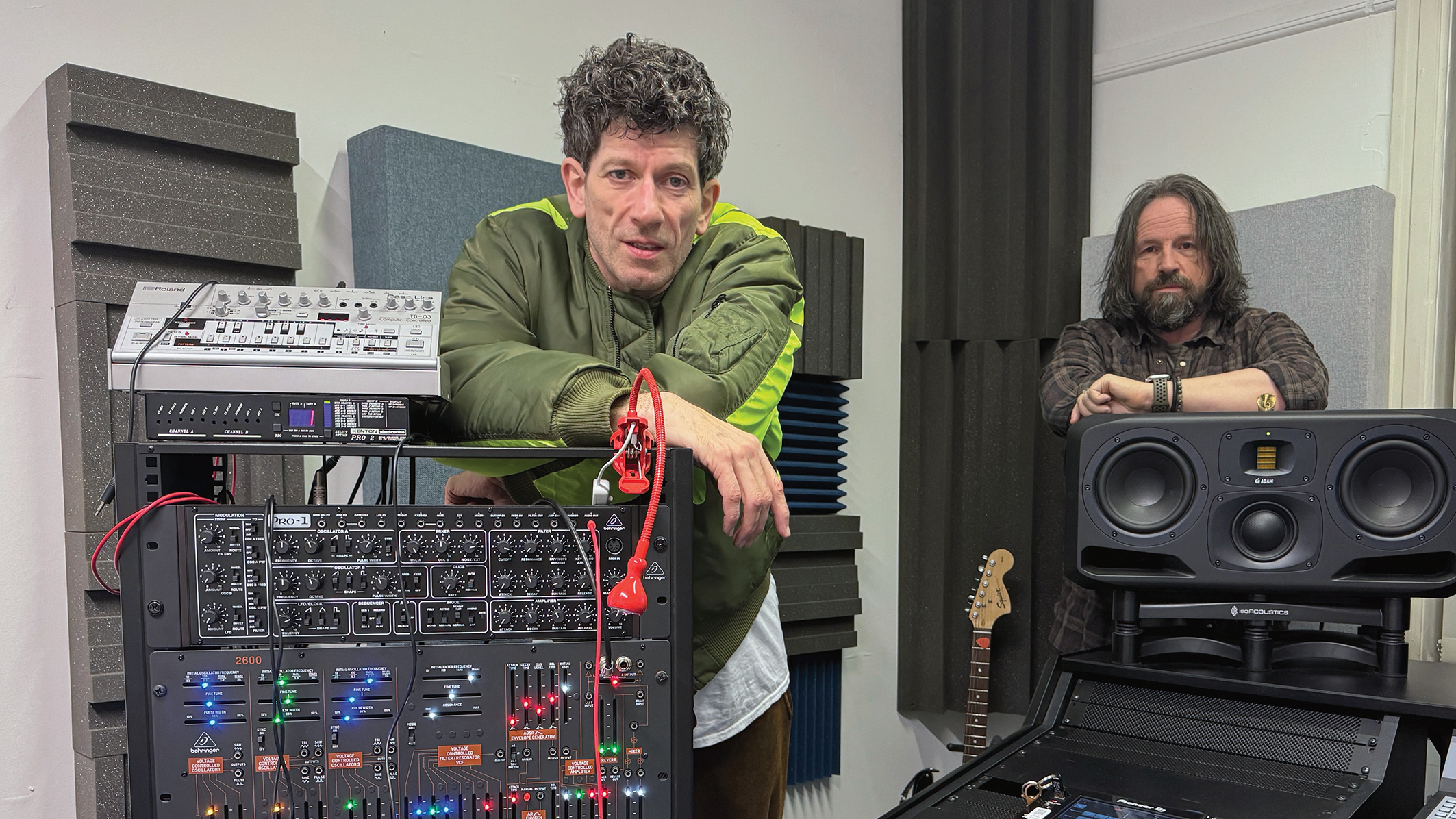
After Jonnie Wilkes arrived at James Savage’s mastering studio with his debut release in considerable need of attention, the duo formed a friendship and decided to work together, leading to the creation of electronic project Naum Gabo. That was over 20 years ago and the duo have been working together on an almost weekly basis ever since.
Following a host of disparate, idiosyncratic releases on notable labels including Kompakt and Wilkes’ own Optimo Music, the double act decided to ramp up the output, resulting in enough material to finally release a debut album. Sitting somewhere between dark ambient and industrial dance, F. Lux sparkles with murky, cinematic atmospheres and dystopian themes.
You’ve been working together for some time now. Tell us how that lengthy association began?
Jonnie Wilkes: “Our first record on Kompakt came out in 2004, so it’s been 20 years, but I actually met James a couple of years before that. I was making music and brought some tracks along to his studio in the city centre after hearing about him as a mix engineer.
We’ve been meeting up religiously at least once a week and have a synergy and language that we use in the studio that’s probably not very typical
“These were the first tracks made in a bedroom studio and I knew they weren’t mixed right and could hear that they didn’t stand up once they went through his desk and monitors. I thought there was too much bass on them, but there was no bass on them and massive errors in referencing. James was very polite about it, but I realised it was going to be a big learning curve for me and at the end we got chatting and thought we should actually try and throw some ideas together.”
On and off, you’ve been releasing music ever since…
JW: “Our friendship has grown out of that. We’ve been meeting up religiously at least once a week and have a synergy and language that we use in the studio that’s probably not very typical. Our music started to come out in dribs and drabs on various labels, but it was only recently that we talked about making an album and I think that was about us getting older. We thought, let’s work quicker and get groups of tracks together. When you do that, there’s a cohesiveness to them that begins to feel a bit more like an album.”
James, not all mastering engineers engage in making music themselves. Have you always combined those two activities?
James Savage: “I’d played piano and keys in conventional bands but was always pulled towards my fascination for the Atari computer and Cubase. I’m not the greatest musician in the world, but I do love technology. The mastering side came about at a time when it was a bit of a grey area, but I enjoyed the process of trying to make someone else’s track sound a bit better and began educating myself on all the technologies. Jonnie and I have very disparate tastes.
We’re quite critical of our own music and don’t let things go too easily, so we’re always repurposing and reworking stuff
“We never thought we’d make a rock track, for example; it was just about seeing what happens. What I have learned is that the volume of equipment you have can eat into your time, so we’ve got into the ethic of using one or two instruments and become quite prolific. What I like about working with Jonnie is that I’ve played in bands before and egos come into it, but we make music for the love of it and get on great. The language Jonnie spoke about isn’t a telepathic thing, but we do look at each other and seem to know whether something is intrinsically right or not.”
JW: “We’re quite critical of our own music and don’t let things go too easily, so we’re always repurposing and reworking stuff, although sometimes your first thought is your best – you can work and work at something until you suck the life out of it.”
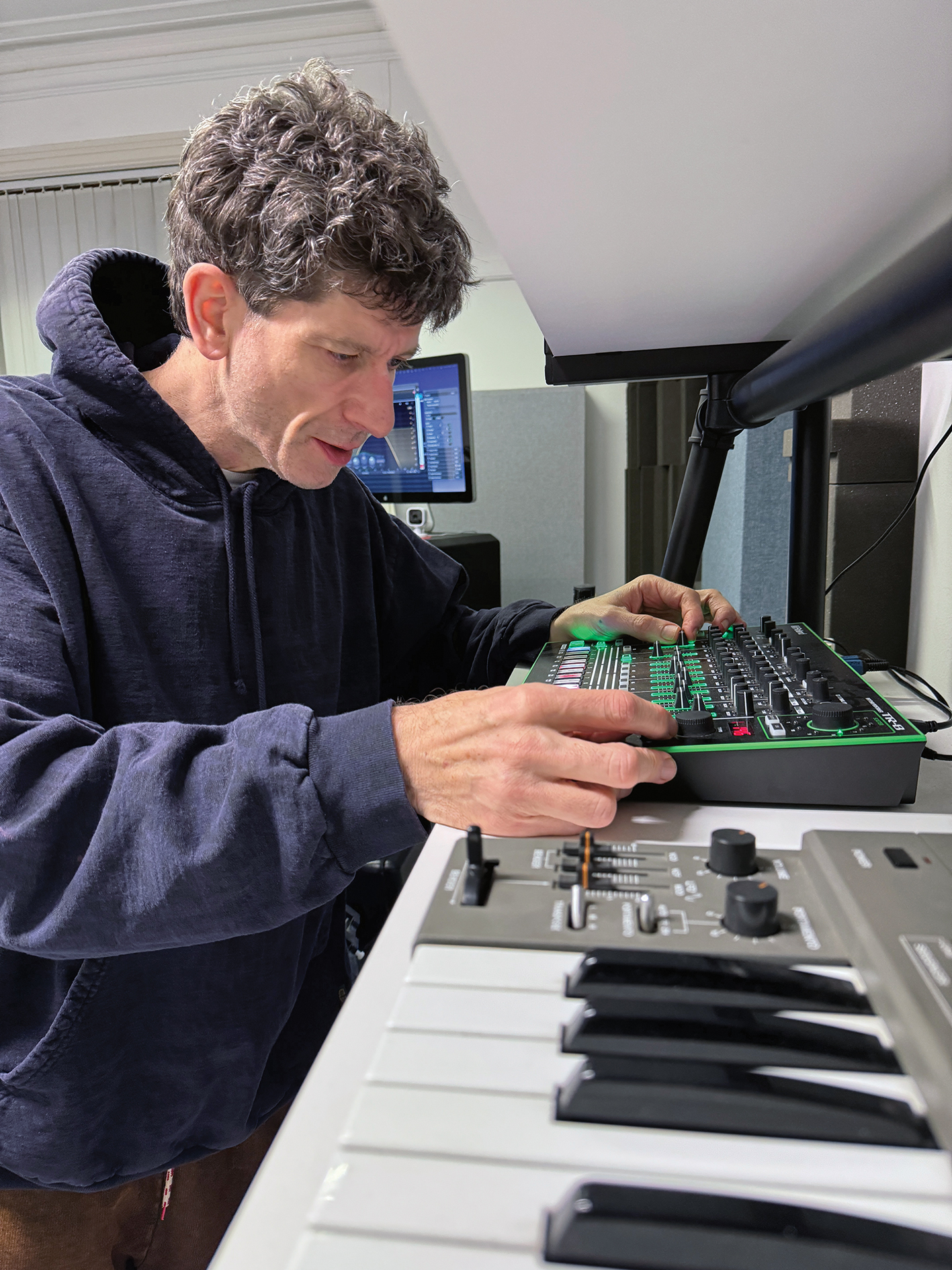
Have you always shared the same approach to the various technologies you use?
JW: “It probably still goes on, but in the late ’90s and early ’00s equipment was so fetishised. I’ve been in fancy studios that are very well maintained and have all these iconic machines, which are like museum pieces now, but they’re brittle, constantly breaking and the sound that comes from them is well-trodden ground. I never felt James was attached to that in an unhealthy way.
“I remember him telling me that he was working with Slam and something happened to their 909. He already had all those Roland machines and said they could take one, but when they asked how much he wanted for it he said £909 [laughs]. I think a lot of people are especially hung up about that stuff, but we’re quite quick to use a piece of equipment, offload it and move on. Sometimes James says ‘let’s go for a really digital sound’, so we’ll pull up an FM synth because that can be a really important way to feed the idea.”
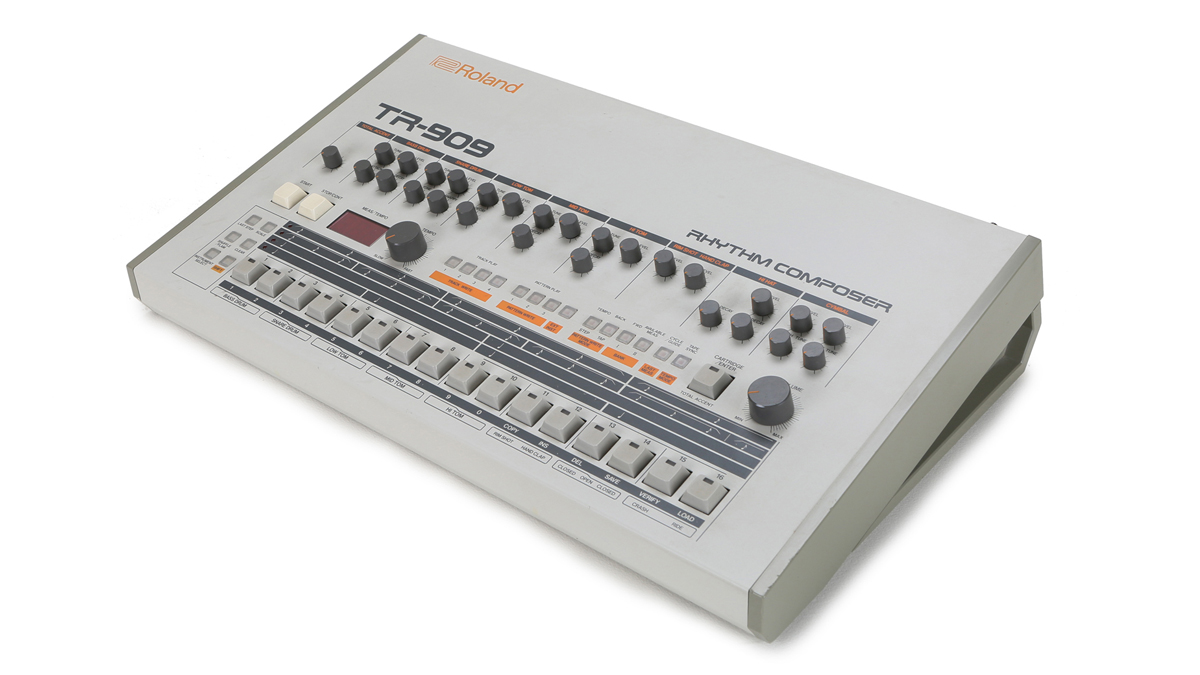
JS: “I sampled the 909 to death, but once it was sampled I was happy to sell it because you can then access the sounds easier, programme them quicker and manipulate them more. For us, the sound has to be interesting, but most importantly it has to fit. When Jonnie and I are in the studio, we’ll switch between softsynths and hardware synths. There’s this purity to analogue, but even with some of the newer emulations, by just playing with the EQ a little you can still bring them up to the spec of the original machines.”
JW: “It’s unfortunate that a lot of producers are desperate to make dance music but don’t think they can do it unless they get a 707, 808 or 909 as used on those classic Chicago or Detroit records. When they get the machine they see how the sequencing aspect is actually quite limited or they’re not so great at programming it and it ends up gathering dust in the studio. They might want to try and copy a Drexciya record, but they never do and that’s limiting from a creative point of view and a bad place to be in.”
Although Naum Gabo’s early releases were uptempo, the sound has always been dark and abstract. Would it be accurate to suggest that’s a product of your Glaswegian environment?
JS: “I’m looking out of my window now and it’s very grey and that does affect you. Our studio is in a very industrial part of Glasgow by the river Clyde and there are still factories and ships being built, so you’re right that it does influence things. Writing a happy, upbeat pop song wouldn’t feel like the right place to be in.”
JW: “Right outside our window there’s a grab arm at the scrap yard moving scrap metal all day, with a railway track behind us and a steel fabrication place over the way, so it’s pretty grim. James and I have often wondered what it would be like if we went to one of those residential studios in the fucking Cotswolds where you look out the window and see green fields, blue skies and a big panoramic view.
We’ve fully embraced the modular thing, although I did initially have a lack of experience in understanding synthesis from the ground up
“To be serious, the geographical context is one thing, but it’s more about what’s inside of you as a person. It’s inevitable that you will communicate that when making music because, as artists, we all have that need within us to do so even if it’s uncomfortable. The inner workings of our minds are as apparent as someone who writes folk music and I really believe that.”
In terms of the latest Naum Gabo album, F. Lux, you came together at James’ Hottrax studio. Was everything created there from scratch or did you bring ideas that you’d developed independently?
JW: “Process-wise, it’s both. We can be tinkering away together or we’ll doodle with a synth sequence or drums recorded on our phone and bring them in as a catalyst for something. That starts triggering a layer effect, which can be an 8-bar loop that we might record, route out and then jam with for five or six minutes to create something of interest.”
How would the process tend to develop from there on out?
JW: “We’ll typically layer things to the point where we can throw out a rough arrangement before taking out what we don’t need and that’s when things start to take a back seat. We’ll also start manipulating things, focusing on anything between half a dozen and 40 sounds, but we don’t set out to achieve a certain amount. Sometimes two drum sounds and a synth is seductive because it’s so simple, and there’s a beauty to that.”
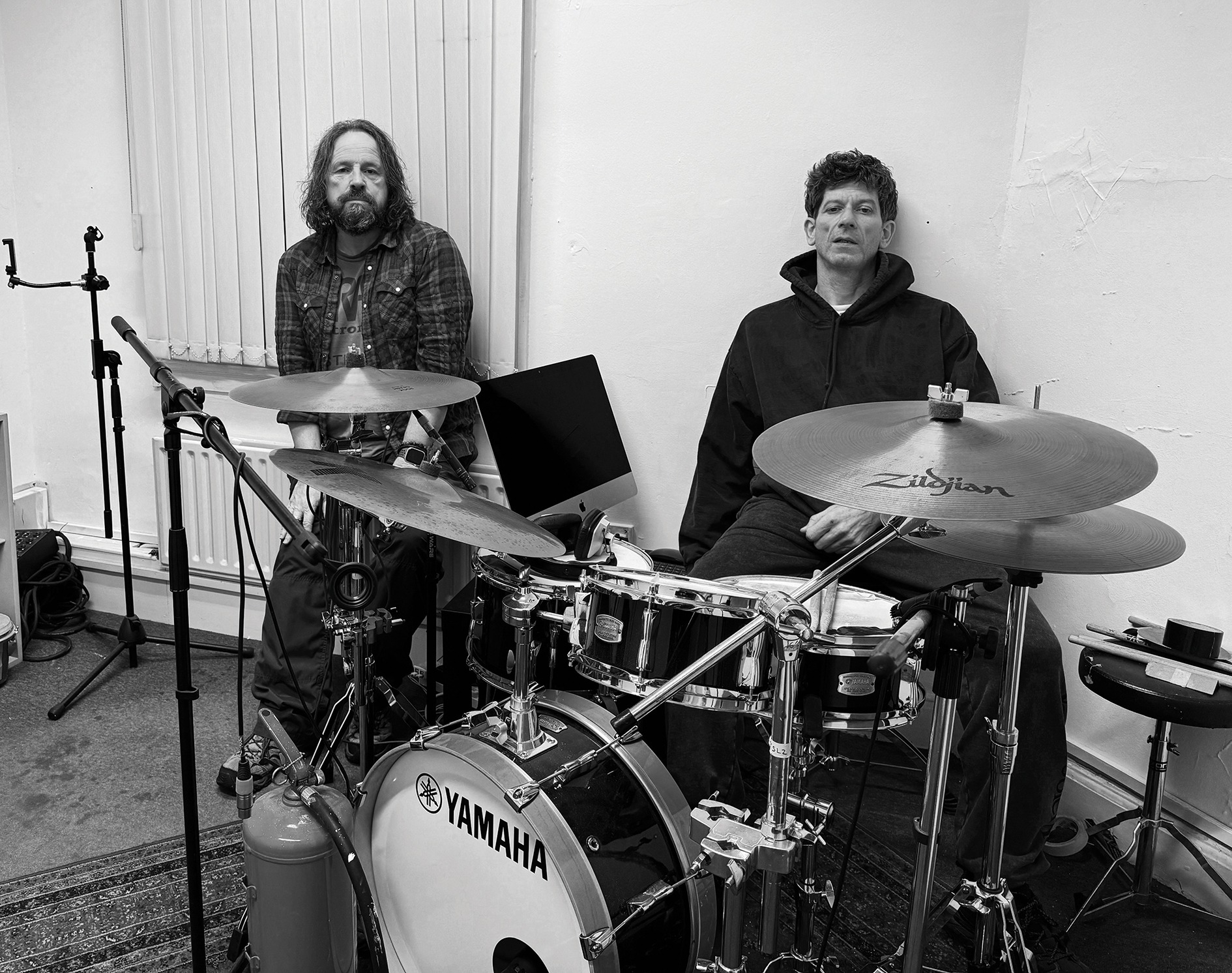
If there is a difference between F. Lux and your previous releases it’s that the beats are more stripped down and part of the sound design rather than driving it…
JW: “It’s still on grid, but you’re right that it’s less obvious. We didn’t concern ourselves with adhering to any rules about structure, we just tried really hard to think about how the sounds were working as an immersive experience, so there are elements of the album that are reminiscent of the structure of a techno track, and we all know how that rolls, but there’s an open-endedness to the rest of it that lets you enjoy the album’s sonics.”
Once you take all the beats away you’re in a corner where you’ve got to listen, and things are going so fast these days that maybe we should be listening to things more deeply
JS: “The four-on-the-floor thing is there but distant in the background and not the priority. The start of the first track Aora was a lot more rhythmic and an example of what we said before about stripping things out to create more of a soundscape approach.”
JW: “I don’t know how to describe it, but there’s a version of the album that we may eventually release where we built segs and transitions between tracks to create one seamless arrangement, and doing that was really interesting. As you said, once you take all the beats away you’re in a corner where you’ve got to listen, and things are going so fast these days that maybe we should be listening to things more deeply.”
What creative technologies did you use during the recording process?
JS: “We have some modular gear and one of our favourite things to use is the Roland Scooper. It’s discontinued now, but a lot of the new takes on sequencers do get me excited. The way we use modular is to look for things that we can route audio through as opposed to starting with a set of oscillators.”
JW: “Sometimes you want to recreate a patch the following week and it’s appealing to use oscillators, filters and envelopes to make really unique sounds, but it’s also a pain in the arse. I personally feel a better way is to use a dedicated synth engine, which could be the Behringer ARP 2600 or a Moog, so you’re starting off with something great there and you can then route it to an amazing Intellijel sequencer or filter, back out through the Scooper and back in again.
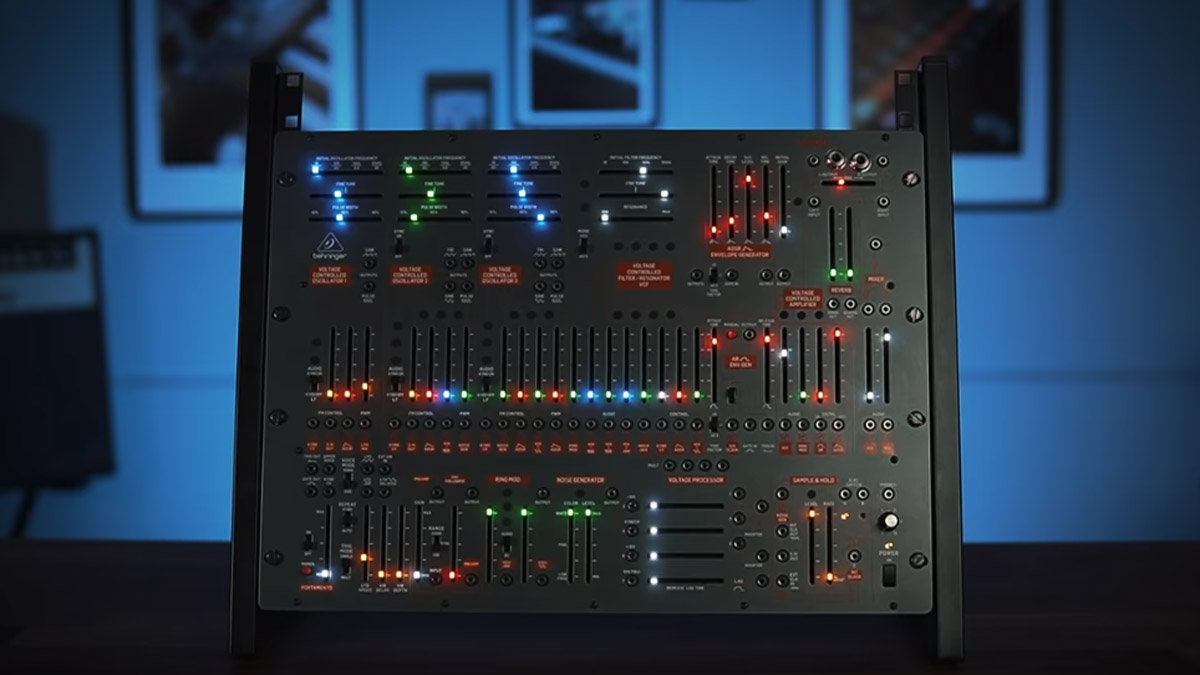
Behringer gets down and dirty with its ARP 2600 synth clone: first demo and overview
“We’ve fully embraced the modular thing, although I did initially have a lack of experience in understanding synthesis from the ground up. Quite often I’d fuck about with the modular and end up with this step sequence of a horrible little squeaky noise that sounded rubbish, but now we’re getting the fat stuff out of it. Part of the process is to come up with something and taint it – we enjoy the perversion of getting one sound to sit alongside another when it really shouldn’t work, and that ends up being the thing.”
How much of that is an issue for you James when, as a mastering engineer, it’s typically your role to make sure those tones sit in the right pocket?
JS: “We’re always thinking ahead when it comes to mastering, but even when we’re mixing I tend to do a lot of metering, so I’m always carving out sounds using EQ with one eye on the mastering side later. On some occasions, we’ll pull all of the faders down and mix from scratch, but more typically we’ll be mixing as we go so there are very few problems when it comes to mastering.”
JW: “Sometimes a snare needs to be absolutely brutal – so loud that anyone with engineering experience would say that’s too much but it needs to cut through like crazy for musical reasons. Other times it doesn’t need to be that loud, you just need the sense to leave a space for it in the range to appear loud and get that effect. Thanks to James, I’ve learnt a lot about how to listen and he’s not too held back by his knowledge of mixing and mastering; some engineers are.”
I have a fascination for space and love listening to music for hours with headphones on and being able to pinpoint everything
JS: “I have a fascination for space and love listening to music for hours with headphones on and being able to pinpoint everything. My son listens to full-on black metal in the car, and you can’t hear any space in that at all. When students ask me about certain albums, I let them hear a Fleetwood Mac LP called Tusk. Instrumentally, there’s not a lot going on, but it’s amazing how it pinpoints instruments in a space.”
JW: “I love what you can do with FabFilter EQs – that’s one plugin that’s been really educating and given me a much better understanding of sound placement because it’s so visual. We got on fine for years with outboard EQs, but some of the software now is amazing.”
While the process of music-making is no doubt therapeutic, does it resolve anything or do you simply take your neurosis into the next project?
JS: “I don’t know if this is clichéd, but as Jonnie said we religiously meet up almost every week and, because we’ve got families and work, other people get a lot more time. But if this was taken away I’d be a different person and my family would probably hate to be around me. I love mastering and can do all of that stuff elsewhere, but being able to produce and create is definitely a release for me.”
JW: “At the risk of sounding pretentious, if you’re the artistic type then you have a need for fulfilment. If it goes well in the studio, the feeling is so unique and real that I can come home a different person and there are not many things in life that are so comfortable to hold onto. If it goes badly because we’ve had a limited amount of time together, then it’s horrible to think you might have wasted a whole day. I’m in a terrible mood when that happens.”





